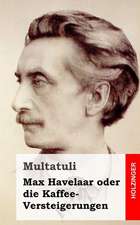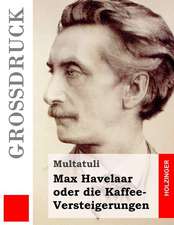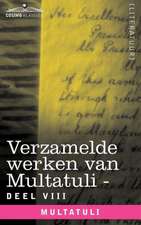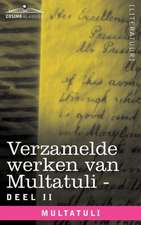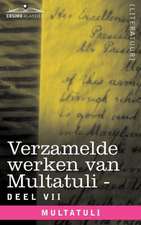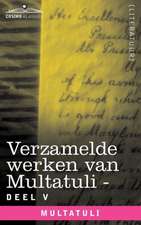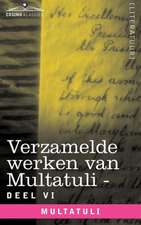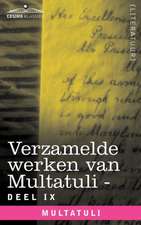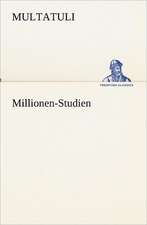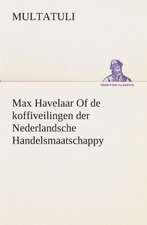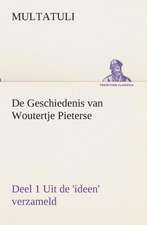Max Havelaar
Autor Multatuli Ilustrat de Alex Struiken Limba Engleză Paperback
| Toate formatele și edițiile | Preț | Express |
|---|---|---|
| Paperback (2) | 78.62 lei 23-34 zile | +26.72 lei 6-10 zile |
| Penguin Books – 26 aug 1987 | 78.62 lei 23-34 zile | +26.72 lei 6-10 zile |
| CREATESPACE – | 109.28 lei 3-5 săpt. |
Preț: 109.28 lei
Nou
20.91€ • 21.83$ • 17.27£
Carte disponibilă
Livrare economică 26 martie-09 aprilie
Specificații
ISBN-10: 1479265101
Pagini: 336
Dimensiuni: 152 x 229 x 18 mm
Greutate: 0.45 kg
Editura: CREATESPACE
Notă biografică
Multatuli is the pseudonym of Eduard Douwes Dekker (1820-1887). After 18 years of civil service in the Dutch East Indies, he returned to Europe in 1856 a disillusioned man. The way the natives were treated by their own as well as by the Dutch rulers offended him so much that he resigned after a public conflict. In his novel Max Havelaar he recorded his experiences. The book was published in 1860 and made him an instant success. Encouraged by this public acclaim, he decided to pursue a career as a writer. He became a sort of national conscience, inspiring emancipatory movements such as freethinkers, socialists and anarchists. Multatuli's career as a writer lasted exactly as long as his career as an official: 18 years. Then, once more profoundly disillusioned, he decided to give up writing and took refuge in Germany, where he died in February 1887.
Descriere
Max Havelaar - a Dutch civil servant in Java - burns with an insatiable desire to end the ill treatment and oppression inflicted on the native peoples by the colonial administration. Max is an inspirational figure, but he is also a flawed idealist whose vow to protect the Javanese from cruelty ends in his own downfall. In Max Havelaar, Multatuli (the pseudonym for Eduard Douwes Dekker) vividly recreated his own experiences in Java and tellingly depicts the hypocrisy of those who gained from the corrupt coffee trade. Sending shockwaves through the Dutch nation when it was published in 1860, this damning exposé of the terrible conditions in the colonies led to welfare reforms in Java and continues to inspire the fairtrade movement today.
Roy Edwards's vibrant translation conveys the satirical and innovative style of Multatuli's autobiographical polemic. In his introduction, R. P. Meijer discusses the author's tempestuous life and career, the controversy the novel aroused and its unusual narrative structure.
Cuprins
Introduction by R. P. Meijer
Max Havelaar
Notes







